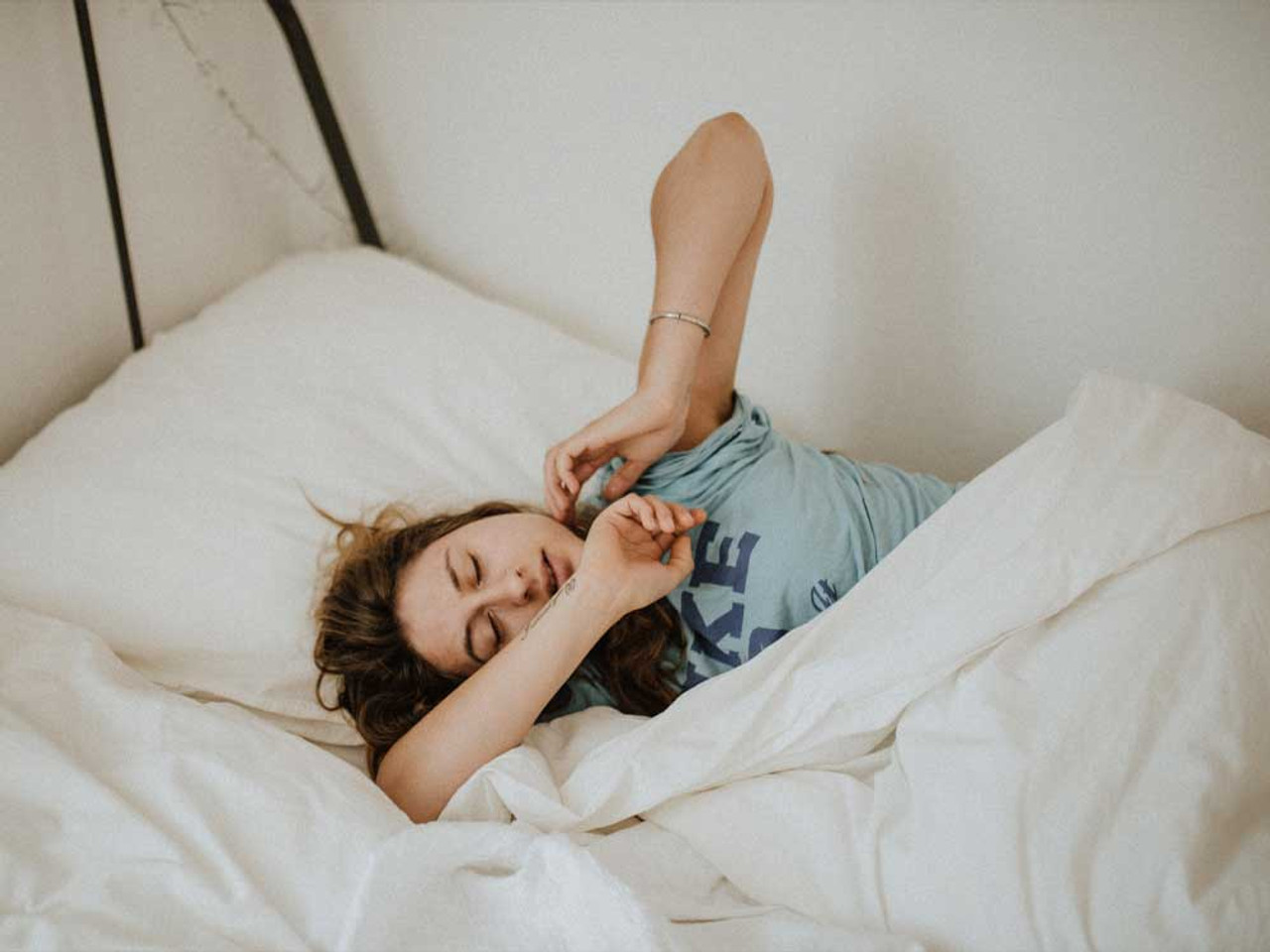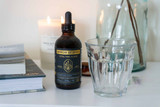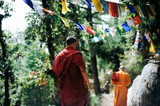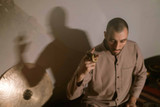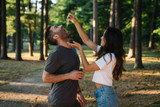Poor Sleep and Low Libido
Libido Begins with Rest: Why Quality Sleep is the Foundation
We receive a lot of questions about libido—specifically, how to enhance it. After a decade of working with RAW Forest Foods, I’ve become convinced that the first question to ask isn’t how to raise libido but rather how to improve sleep. Before anything else, sleep should be the primary focus, the foundation upon which everything else rests. No amount of interventions or supplements can make up for a lack of quality sleep.
While there’s no single, direct cause-and-effect solution for either sleep or libido, I’ve found that both require a committed focus on lifestyle adjustments, with supplements as complementary support. That’s the not-so-quick fix some may hope for, but here’s the reassuring part: both are entirely resolvable. And in addressing them, many areas of life—including overall wellness—will naturally improve.
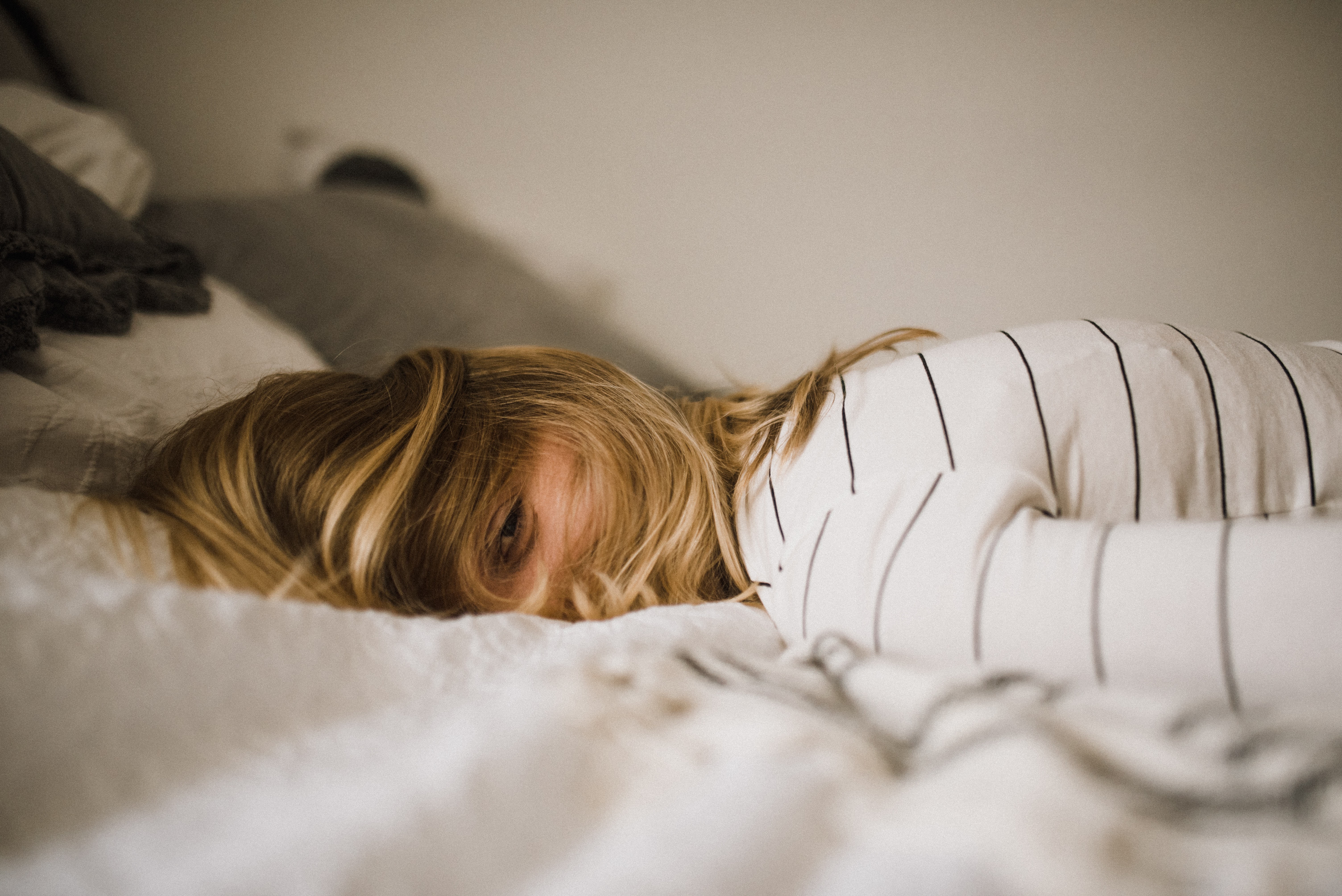
Sleep and Testosterone: The Essential Connection
Without adequate sleep, the body simply cannot produce adequate testosterone. This is a physiological reality, backed by extensive research, and there’s no way around it. Sleep is the backbone of health, supporting everything from immune resilience to hormonal balance, including testosterone and libido. Testosterone is a primary driver of libido in both men and women, so it stands to reason that sleep disruptions will also disrupt libido.
Studies further reveal that insufficient sleep can increase stress levels, triggering symptoms of anxiety and depression—all of which can have a profoundly negative impact on libido. Additionally, poor or inadequate sleep raises cortisol, the body’s primary stress hormone, which interferes with testosterone production. This cyclical effect can make it difficult to achieve the balance essential for optimal well-being.
Quick Self-Check: Are You Truly Rested?
A simple test for evaluating sleep quality is to ask: Do I feel rested upon waking? Surprisingly, most people answer “no,” even those who believe they sleep well. Waking up unrefreshed is often an indicator that, despite sufficient hours, sleep quality is lacking.
In addressing libido, sleep must come first because it is the foundation upon which so many bodily processes rest. Unfortunately, there’s no universal fix for improving sleep. Whether for the insomniac, the “good sleeper” who wakes up exhausted, or everyone in between, finding balance will take a thoughtful approach. In the following, I’ll share some of the most research-backed strategies for improving sleep (and, as a result, supporting libido).
Strategies for Improving Sleep Quality and Duration
If you’re looking to enhance libido or support healthy testosterone levels, addressing sleep should be the first step. Before any other lifestyle adjustments or supplements can have an impact, sleep quality and consistency need to be in place. Each of the following strategies is well-supported by research, so if you’re interested in learning more, rest assured—the science is solid.
Timing and Regularity: Setting Your Body’s Internal Clock
Sleep isn’t just about how long you’re in bed; it’s also about when you’re there. Research shows that consistent timing is key for high-quality sleep. It’s better to get six hours of sleep at the same time each night than to get eight hours inconsistently. Regular sleep and wake times help regulate your body’s circadian rhythm, which plays a vital role in hormone production, including testosterone.
To get started, pick a consistent bedtime and wake-up time that you can follow every day (yes, even on weekends). If you use an iPhone, the built-in sleep schedule feature can help you track this easily.
Ambient Temperature: Creating the Optimal Sleep Environment
Temperature, more than light, has a profound impact on sleep quality. Studies show that a cool room—around 60-67°F—promotes both falling asleep and staying asleep, as the body’s core temperature naturally drops as it prepares for sleep. This cooling signal tells the body it’s time to rest, supporting a natural sleep cycle.
Research even highlights the Maasai people of Africa, who naturally follow sleep patterns more linked to environmental temperature changes than light. I’ve applied this to my own life, and I’ve seen a remarkable improvement in sleep quality by keeping my room cool, even with a window open in subzero temperatures.

Light and Screen Exposure: The Impact of Blue Light and Stimulation
There’s a lot of buzz about blue light these days, and for good reason: blue light from screens disrupts melatonin production, delaying sleep. But just as important is the stimulating nature of what we’re viewing on these screens, especially at night. For extreme cases of insomnia, I recommend absolutely no screen time after sundown.
Some people say they can only fall asleep with the TV on, but this habit can be unlearned. Often, people fall asleep because the distraction of TV keeps them from worrying about falling asleep. As soon as the TV turns off, they’re suddenly wide awake. Breaking this habit helps the body readjust to natural cues for sleep.
Reducing Overhead Lighting
After sundown, switch off overhead lights, which mimic the brightness of midday sun. Opt for table lamps or softer lighting to cue your body that it’s time to wind down. Light is inherently stimulating, and dimmer lighting naturally signals the body that night is approaching, which is essential for restful sleep.
Associating the Bed with Sleep: A Core Strategy for Insomnia
One cornerstone of Cognitive Behavioral Therapy for Insomnia (CBT-I) is to use your bed strictly for sleep, not for wakefulness. If you find yourself lying awake for more than 20 minutes, get up, and do something quiet and relaxing—like reading a book under a soft light—until you feel drowsy again. This practice helps reinforce the association between bed and sleep, rather than bed and sleeplessness.
The Power of a “Light Fast”: Resetting Your Sleep Rhythm Naturally
For those suffering from stubborn insomnia, I often recommend a “light fast” after sundown, turning off all artificial lights and screens. If you need light, opt for a candle. While few people take me up on this, those who do often find that their body naturally readjusts within a few days, allowing them to fall asleep and stay asleep with ease.
Camping provides a great example of how light fasting works. Many people report sleeping well in a natural setting without screens and artificial lights. It usually takes a couple of days for the body to adjust, but by the third night, most people sleep deeply and restfully. This “camping effect” highlights how responsive the body is to environmental cues like low light and cooler temperatures, reinforcing the strategies we’ve discussed.
The Effect of Caffeine on Sleep Quality
Caffeine’s impact on sleep is often underestimated, even by those who believe it doesn’t affect them. While many people can still fall asleep after consuming caffeine, research shows that it interferes with deep, restorative sleep stages—those critical phases that allow the body to recover, rejuvenate, and balance hormones.
Caffeine has a long half-life, meaning it stays active in the body for hours. On average, half of the caffeine you consume is still present in your system five hours later. This lingering effect can disrupt the quality of sleep without you realizing it. For those who drink much—or any—caffeine, it’s likely diminishing the restorative depth of their sleep.
To explore caffeine’s broader effects on wellness, see our posts on The Deleterious Effects of Coffee: A Chinese Medicine Perspective and Coffee as a Medicinal Herb.
Additional Lifestyle Strategies for Better Sleep
Beyond sleep hygiene and environmental adjustments, lifestyle practices like mindfulness meditation and exercise can help fine-tune sleep quality. When major life stresses are at play—keeping you awake with worry—those issues naturally need attention. Simply dimming the lights or avoiding screens isn’t enough; these stressors require a more direct, proactive approach during the waking hours.
Mindfulness and gentle exercise have been shown to reduce stress and support a healthier mindset, making it easier to unwind and sleep peacefully at night. Personally, I’ve found that when significant worries are keeping me awake, getting out of bed and jotting down a to-do list of actionable steps toward resolution can be invaluable. Lying awake and ruminating won’t provide solutions, but taking even small steps toward constructive action can offer clarity and relief.
Engaging in these practices can help ease the emotional weight of the day, allowing you to transition into sleep with a greater sense of calm and readiness for rest.
Supplementation to Support Restful Sleep
For sleep support, I recommend focusing on non-stimulatory, restorative herbs. Our TapRoot Deep Jing Extract Powder Elixir is specifically formulated to encourage deep, replenishing rest without any stimulating effects. For additional endocrine support, consider Mountain Alchemy Pine Pollen Elixir Capsules—also available as a tincture and previously known as the Endocrine Strengthening Formula. Both products work together to nourish the body holistically, promoting calm and balance.
If caffeine intake is impacting your sleep, try transitioning to our Lan Gui Ren Loose Leaf Oolong Tea Elixir. This smooth, gentle tea provides a natural alternative to coffee, supporting sleep without the intensity of caffeine.
The "L" Word: Libido
Ultimately, the goal is for restful sleep to either resolve any libido concerns you’re experiencing or at least create the foundation for effective solutions.
Libido and Desire: Cultivating Zeal for Life
Libido is best understood as a form of desire—a zest for life—not as an isolated need. In my experience, libido naturally reflects our level of excitement and engagement with life. If I’m not feeling particularly energized or motivated, I’m not likely to feel an interest in intimacy either. This makes sense: when we’re feeling stuck or stagnant, our desire (and thus our libido) will often feel diminished. But when we’re actively engaged in something meaningful, libido tends to return alongside that sense of purpose. Desire, in all its forms, can be cultivated, tended to, and coaxed back into vitality.
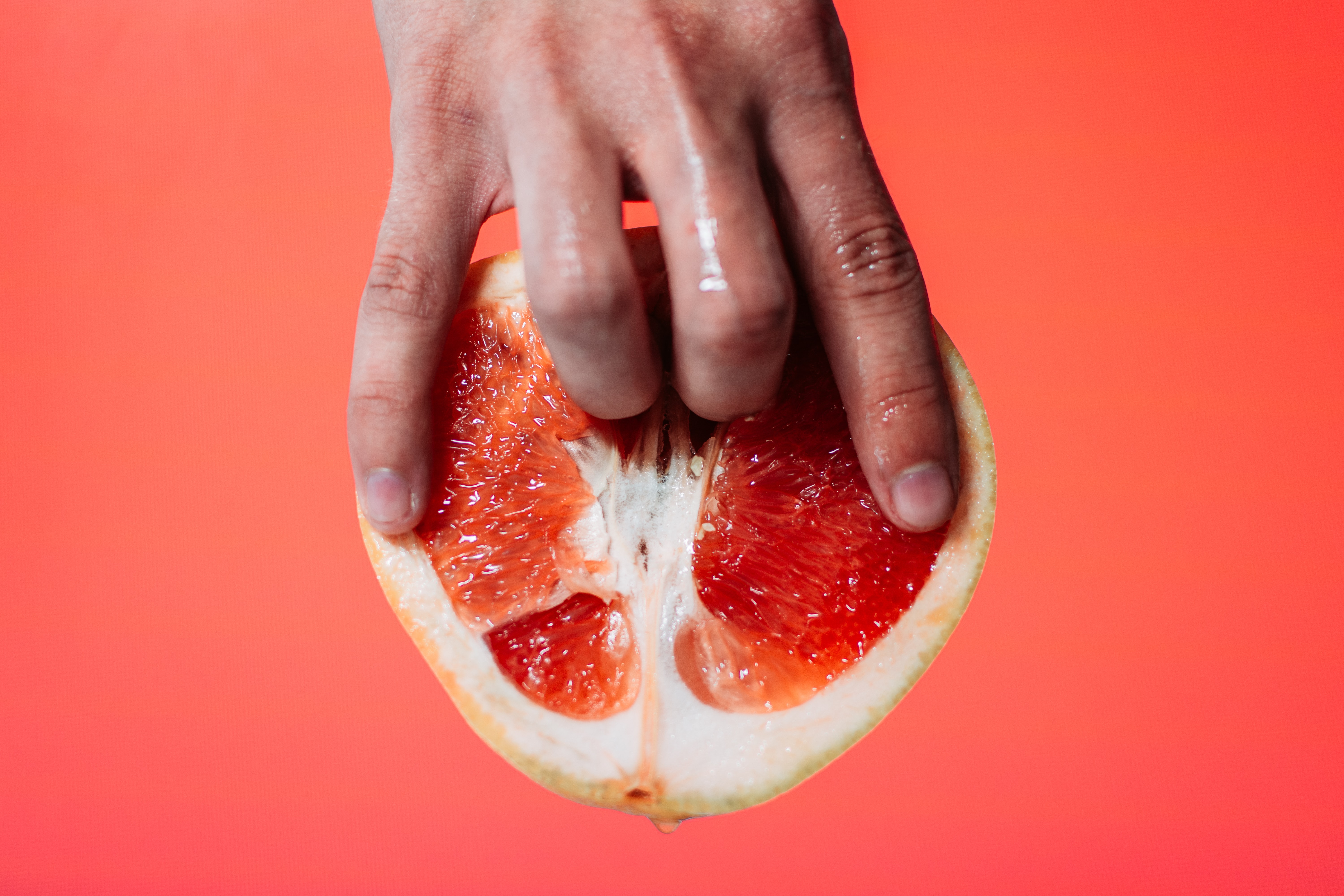
Herbs to Nurture Libido
Think of desire as a single reserve, with libido as one of its many expressions. When our “desire account” is full, we have energy to engage and connect, but when it’s running low, there’s little left to give. Managing and nourishing this reserve becomes more essential as we age. In youth, our reserves of vitality are naturally high, but with time, we need to steward and budget our desire more carefully.
To support libido, testosterone-building supplements can be beneficial, but libido is more complex than testosterone levels alone. That’s why we created Arrow of Eros Vital Fire Elixir Tincture—formulated to support not only testosterone but all facets of the libido equation.
For an inspired recipe to incorporate into your routine, check out our Aphrodisiac Chai Tea Recipe and Guide. Here, we include a variation on traditional masala chai with our Arrow of Eros Vital Fire Elixir Tincture to foster increased sexual energy.
A Foundational Approach to Supporting Libido
For building and sustaining libido, I recommend focusing first on replenishing the body’s reserves before targeting specifics. Our Forest Manna™ RAW Pine Pollen Powder—available in capsules, powder, and tablet form—is ideal for foundational support, along with our Mountain Alchemy Pine Pollen Elixir Capsules and Tinctures, which help build a store of vitality that can sustain libido over the long term. Once a strong base is in place, if libido needs an extra push, adding a more targeted formula like Arrow of Eros Vital Fire Elixir Tincture can help to spark the desired effects.
In general, libido tends to follow when testosterone levels are supported, but there must be an underlying sense of desire to truly ignite it. There’s no shortcut to reversing the natural progression of age, but with the right foundation, libido can be cultivated with care and intention.
For more on how adaptogenic and androgenic herbs support healthy testosterone levels, see our blog post, The Three Classes of Proandrogenic Herbs. This article provides an in-depth look at how these herbs promote hormonal health, particularly as the body’s natural testosterone production gradually declines with age. For those seeking this support, foundational supplementors like Pine Pollen align well with the body’s hormonal rhythms, working gently to sustain vitality over time.
Testosterone and Aging: A Realistic View
It’s natural for testosterone production to gradually decline as we age, which can lead to noticeable shifts in energy, vitality, and libido. While this process is normal, it’s also one that can be supported thoughtfully with lifestyle adjustments and natural interventions.
Adaptogenic herbs, particularly Pine Pollen, offer one way to help maintain hormonal balance as testosterone levels shift over time. Adaptogens are unique in their ability to support the body’s response to stress, helping to regulate the hypothalamic-pituitary-gonadal (HPG) axis—a vital hormonal pathway that influences testosterone production. By encouraging resilience within the HPG axis, adaptogens work with the body’s natural rhythms to sustain vitality and endurance.
For those seeking a well-rounded approach to maintaining testosterone levels, Pine Pollen serves as a potent, natural ally, aligning with the body’s own rhythms rather than attempting to artificially elevate testosterone. Our Forest Manna™ RAW Pine Pollen products, available in powder, capsule, and tablet forms, are designed to support these age-related hormonal changes gently and sustainably.
Approaching testosterone support from a foundation of balance and sustainability, rather than a quick fix, allows us to nourish overall well-being while respecting the body’s natural aging process.
The Takeaway
There are two main takeaways here for understanding libido. First, to address libido fully, we must start with sleep. No amount of supplementation can replace quality, restorative sleep. Think of sleep as the essential staves of a barrel: if even one stave is missing, the entire barrel will leak, no matter how close to full it may appear. Without proper sleep, any other measures won’t hold.
The second takeaway is that libido is a subset of our overall desire. When we lack a true zest for life, libido will inevitably follow. Likewise, if we’re constantly “spending” from our desire reserve without replenishing it, we may find libido diminished—especially as we age. As with all forms of vitality, desire and libido require careful tending. We must actively nurture them to keep that fire alive.
Site Disclaimers
General Guidence
The content on this site is provided for educational and informational purposes only and should not be construed as medical advice. Always consult a qualified healthcare provider before making changes to your diet, lifestyle, or health regimen, particularly if you are pregnant or nursing, under the age of 18, managing allergies or known sensitivities, or living with any medical conditions.
At RAW Forest Foods, your safety is our priority. Please note that our products are dietary supplements, not medications. The following disclaimer applies:
* These statements have not been evaluated by the Food and Drug Administration. These products are not intended to diagnose, treat, cure, or prevent any disease.
Ingredient Transparency and Allergen Awareness
We are committed to providing transparent ingredient information to help you make informed decisions. If you have or suspect you have allergies to any of our ingredients, we strongly advise against using our products, as allergic reactions can be severe.
Interaction with Medications
If you are taking any medications, consult with your healthcare provider before using supplements. Certain supplements may interact with medications, potentially altering their effectiveness or causing unwanted effects.
For more details, please review our full Terms and Conditions.
